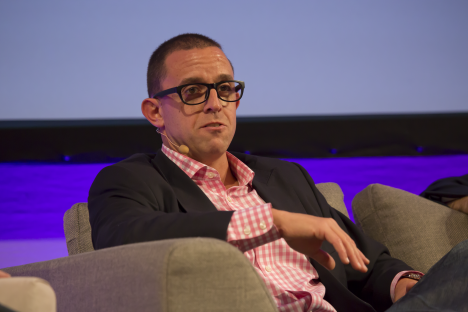The American dream: Why it can turn into an Aussie’s nightmare
Henry Tajer rallied an entourage of Aussies around him in the Big Apple, charged with dragging IPG Mediabrands into the future. But something happened along the way and Tajer and one of his key lieutenants are gone. Simon Canning tries to unravel what went wrong and what lessons might be learned.
Start spreading the news, I’m leaving today, I want to be a part of it, New York, New York. Frank Sinatra sang the song and for the past few years Aussies have been humming it as they made their way across the Pacific. But recently success in the antipodes has not been translating to Madison Avenue as easily as their US sponsors might have liked and the industry has seen a retreat of form in recent months as the Big Apple reveals its core.
Brash, ambitious, entrepreneurial and in demand, there was something attractive in the Australian media success story that saw some of our top talents led by IPG’s Henry Tajer lured stateside with brief to shake things up.
But, faced by entrenched, fearful and slow-moving US counterparts who were wedded to a status-quo economy, the vision has for many unraveled.



They’ve done alright!!
https://mumbrella.com.au/cummins-partners-new-york-picks-three-new-accounts-432601
So, Americans are regimented, cautious, averse to risk-taking, bound by the old school tie, conservative, and litigious. That sounds like the kind of thing Americans say about the Brits, or indeed about us.
Could it be that there is more to this story?
Dude. I was waiting that someone says the glaringly obvious.
Thank you
This article probably explains the departures a little clearer. Just arbitrage. Not really a strategy that had longevity or any smarts behind it. I guess it was easier to hide that behaviour in Australia.
https://adexchanger.com/agencies/behind-ceo-henry-tajers-exit-ipg-mediabrands/
Your name is misleading.
But your claim is on the ball.
Anyone in Australia who knows Tajer well knows how he works. He was a trader in Mediacom.
It worked in Australia. Didn’t work in US.
May be we in local industry need to introspect. And find more scalable models to bring Aussie class to global leadership. As some other Australian leaders are doing already.
Poor John. Good John. Collateral damage.
I think you nailed it on the head.
Practises like this made me get out of the media industry. Everyone harps on about how the poor clients are affected but we need to look at a macro level at what these actions have done to the whole industry – publishers, media sales, careers etc.
I hope we are witnessing a new breed of CEO coming in that can deliver for their clients, the holding companies and the market as a whole.
If the adexchanger article has any merit, then there is too much to ‘clean up’ for IPG. It’s not easy for the holding company to hire someone at the global or regional level and then change their mind. The article seems to point towards that angle.
Kind appears all rather simple really. Australia is a very different market in respect to the US. I wouldn’t say that here it’s a far more risky way of doing business in terms of go for it, fail fast and move on. That;s where people like to categorize the way that business is done.
Reality is that many Australian media businesses lack critical thinkers, not within their businesses but with in leadership roles. Most of what they do has no substantiation. Think about press around publishers launching new shiny things in the press, they are just that there is no context or depth behind it just atop line idea and a sly way of cheap advertising.
One thing that is never going to work is jumping countries and employing the same tactics. As an individual if you move to a new company, country or even client your responsibility is to do your due diligence and learn to adapt to the new way of working. Cookie cutters do nothing but create cookies, not money.
Sounds like some of the issue is people being exposed when they move to a company with a bit more rigor and a base of critical thinkers.
4 of the 5 are now gone and only Baxter remains. The Tajer entourage cleanout has been menacing. Is the clock ticking on the last man standing?
Was there in IPG, saw it all coming a mile away and bolted. There was no substance with the Australians. They talked a big game. Swooped in like know it all white knights, and had no grasp on the concept of transparency that was blowing up the whole market. In their eyes, the American were all dumb. They had all the magical answers. The whole thing was a train wreck in slow motion. But apparently not that slow. Roth shut the whole down in under 2 years.
The aggressive culture that Henry cultivated just cracked open years of IPG’s effort to create something more sustainable and decent. It’s an American holding company and makes more sense that Henry and entourage respected that notion from day one. [Edited under Mumbrela’s comment moderation policy]. It turned out to be a Game of Thrones in Madison Square. The arbitrage strategy, rewarding obscure and high benefits to his selected team [edited under Mumbrella’s comment moderation policy] are just a few self inflicting and career limiting moves they made. Thank God Roth saw this much earlier.